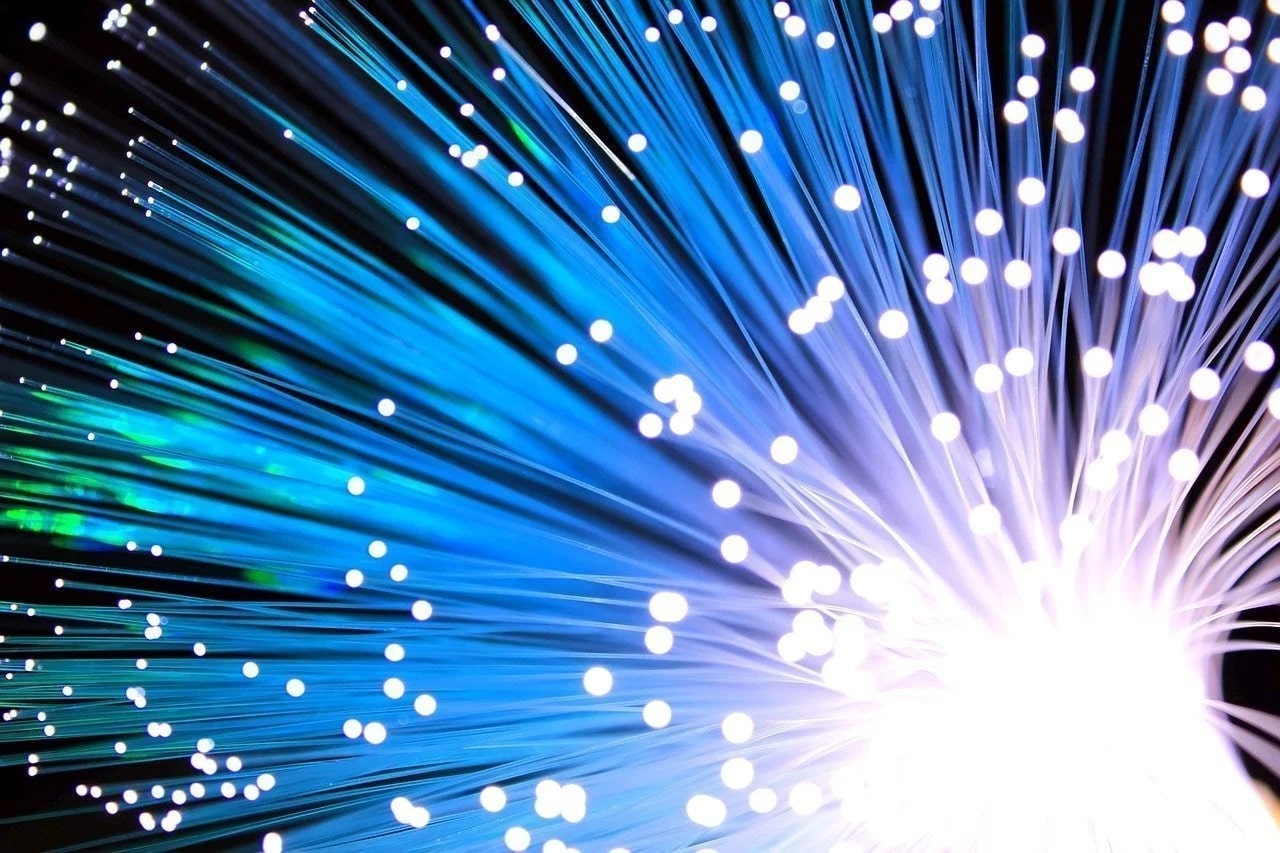
Fiber optic technology has revolutionized how we communicate, stream, and work. But what exactly makes it so special? Fiber optics use light to transmit data at incredible speeds, far surpassing traditional copper cables. This means faster internet, clearer phone calls, and more reliable connections. Imagine downloading a movie in seconds or having a video call with zero lag. Fiber optics also offer greater bandwidth, allowing multiple devices to run smoothly without slowing down. Plus, they are more durable and less prone to interference. Ready to learn more? Here are 17 fascinating facts about fiber optics that will blow your mind!
What is Fiber?
Fiber is a type of carbohydrate that the body can't digest. Unlike other carbs, fiber doesn't break down into sugar molecules. Instead, it passes through the body undigested, helping regulate the body's use of sugars and keeping hunger and blood sugar in check.
-
Fiber is essential for digestive health. It helps move food through the digestive tract, preventing constipation and promoting regular bowel movements.
-
There are two types of fiber: soluble and insoluble. Soluble fiber dissolves in water to form a gel-like substance, while insoluble fiber does not dissolve and helps add bulk to stool.
Benefits of Fiber
Fiber offers numerous health benefits beyond just aiding digestion. Here are some key advantages of including fiber in your diet.
-
Fiber can help lower cholesterol levels. Soluble fiber found in oats, beans, and flaxseed can reduce the absorption of cholesterol into your bloodstream.
-
It helps control blood sugar levels. Soluble fiber can slow the absorption of sugar, helping improve blood sugar levels, which is particularly beneficial for people with diabetes.
-
Fiber aids in achieving a healthy weight. High-fiber foods are more filling than low-fiber foods, so you're likely to eat less and stay satisfied longer.
Sources of Fiber
Incorporating a variety of fiber-rich foods into your diet is crucial for reaping its benefits. Here are some excellent sources of fiber.
-
Fruits and vegetables are great sources of fiber. Apples, bananas, oranges, carrots, and broccoli are all high in fiber.
-
Whole grains provide a significant amount of fiber. Foods like brown rice, whole wheat bread, and oatmeal are excellent choices.
-
Legumes are packed with fiber. Beans, lentils, and chickpeas are not only high in fiber but also rich in protein.
Fiber and Heart Health
Fiber plays a crucial role in maintaining heart health. Here’s how it contributes to a healthier heart.
-
Fiber can reduce the risk of heart disease. Studies have shown that a high-fiber diet is linked to a lower risk of developing heart disease.
-
It helps manage blood pressure. A diet rich in fiber can help lower blood pressure, which is a significant risk factor for heart disease.
Fiber and Gut Health
A healthy gut is essential for overall well-being, and fiber is a key player in maintaining gut health.
-
Fiber promotes the growth of good bacteria in the gut. These beneficial bacteria help with digestion and can improve overall health.
-
It can help prevent diverticulitis. This condition, which involves inflammation of the intestines, can be prevented with a high-fiber diet.
Fiber and Weight Management
Maintaining a healthy weight is easier with a diet high in fiber. Here’s why.
-
Fiber-rich foods are low in calories. They provide volume and take longer to chew, which helps you feel full without consuming too many calories.
-
It helps reduce appetite. By slowing down digestion, fiber helps you feel full longer, reducing the likelihood of overeating.
Daily Fiber Intake
Knowing how much fiber you need daily is important for maintaining good health.
-
The recommended daily intake of fiber is 25 grams for women and 38 grams for men. Most people, however, only consume about half of this amount.
-
Gradually increasing fiber intake is crucial. Adding too much fiber too quickly can cause digestive discomfort, so it's best to increase it gradually.
Fiber Supplements
Sometimes, it can be challenging to get enough fiber from food alone. That’s where fiber supplements come in.
- Fiber supplements can help meet daily requirements. Products like psyllium husk, methylcellulose, and inulin can be used to boost fiber intake, but it's always best to get fiber from whole foods when possible.
Fiber Facts: The Final Thread
Fiber is more than just a dietary component; it's a powerhouse for your health. From aiding digestion to helping control blood sugar levels, fiber plays a crucial role in maintaining overall well-being. Soluble fiber dissolves in water, forming a gel-like substance that can help lower blood cholesterol and glucose levels. Insoluble fiber, on the other hand, promotes the movement of material through your digestive system and increases stool bulk, which is beneficial for those struggling with constipation or irregular stools.
Eating a variety of fiber-rich foods like fruits, vegetables, whole grains, and legumes ensures you get both types of fiber. Remember, increasing fiber intake gradually and drinking plenty of water can help prevent digestive discomfort. So, next time you're planning meals, think about how you can add more fiber to your diet. Your body will thank you for it.
Was this page helpful?
Our commitment to delivering trustworthy and engaging content is at the heart of what we do. Each fact on our site is contributed by real users like you, bringing a wealth of diverse insights and information. To ensure the highest standards of accuracy and reliability, our dedicated editors meticulously review each submission. This process guarantees that the facts we share are not only fascinating but also credible. Trust in our commitment to quality and authenticity as you explore and learn with us.


